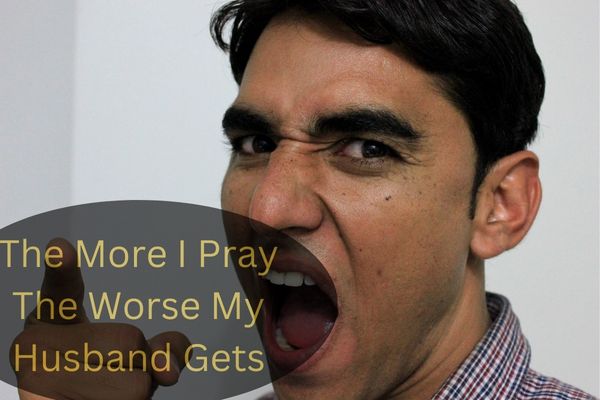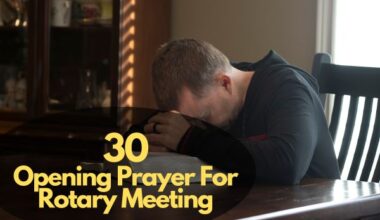Table of Contents Show
Navigating the intricacies of relationships often involves seeking various means to foster harmony. For some, prayer becomes a compelling avenue, a divine intervention sought to enhance connections with their partners.
However, a perplexing phenomenon arises: “The More I Pray, The Worse My Husband Gets.” This article embarks on an exploration of this paradox, looking into different perspectives, psychological aspects, and pragmatic solutions.
The More I Pray The Worse My Husband Gets
The statement “The More I Pray, The Worse My Husband Gets” suggests a perplexing and counterintuitive experience in a relationship where an increase in prayer appears to correlate with a deterioration in the husband’s behavior or the overall relationship dynamics. This phenomenon raises questions about the efficacy of prayer in the context of the relationship and prompts an exploration into the complex interplay between spirituality and the intricacies of human connections.
For many women of faith, prayer is a cornerstone of their marriage. They pour their hearts out to God, beseeching him for blessings, guidance, and strength for their union. But what happens when, despite fervent prayer, the situation seems to worsen? When instead of healing, the marriage appears to be fracturing further, leaving the wife questioning not only her prayers but the very foundation of her faith?
This is the agonizing paradox experienced by many women in troubled marriages. They feel torn between their unwavering belief and the harsh reality of their relationship. The disconnect between prayer and the desired outcome can be profoundly confusing and emotionally debilitating.
Understanding the Paradox
Several factors can contribute to this complex situation:
- Unrealistic expectations: Sometimes, prayer is seen as a magic wand, guaranteeing desired outcomes. This can lead to disappointment and frustration when things don’t unfold as envisioned.
- Misinterpreting God’s will: It’s important to remember that God’s will may not always align with our immediate desires. Growth, change, and even challenges can be part of his divine plan.
- Focusing solely on prayer: While prayer is powerful, it’s not a substitute for personal responsibility and action. Addressing underlying issues in the marriage through open communication, seeking professional help, and setting healthy boundaries are crucial steps.
- Spiritual warfare: Some believe that troubled marriages can be influenced by spiritual forces. In such cases, seeking spiritual guidance and protection can be helpful.
Finding Hope Amid Doubt
This paradox doesn’t negate the power of prayer. It simply challenges us to re-examine our perspective and approach. Here are some ways to navigate this difficult terrain:
- Shift your focus: Instead of praying solely for specific outcomes, pray for God’s wisdom, guidance, and strength for both you and your husband.
- Embrace uncertainty: Accept that God’s timing may not be ours, and trust that he is working even during challenges.
- Focus on your growth: Use this time to deepen your faith and relationship with God, regardless of the state of your marriage.
- Seek support: Connect with other women of faith who understand your struggles and can offer encouragement and guidance.
- Don’t give up on your marriage: Continue to pray, communicate openly with your husband, and seek help if needed. Remember, even the strongest oaks weather storms before reaching their full potential.
Conclusion
The phrase, “The More I Pray, The Worse My Husband Gets,” opens a window into the intricate interplay between spirituality and the dynamics of a romantic relationship. This enigmatic connection prompts an exploration into the deeper facets of how prayer influences the intricate dance between partners. To truly comprehend this phenomenon, one must navigate the labyrinth of nuances associated with the act of prayer within the context of romantic unions.
In the realm of relationships, prayer often serves as a beacon of hope, a means to bridge gaps, and a source of solace during challenging times. However, the paradox emerges when the very act intended to bring about positive change becomes seemingly counterproductive. Understanding this paradox requires a nuanced examination of how prayer functions within the intricate human connections.
First and foremost, the nuances of prayer in relationships involve a multifaceted exploration of expectations. The act of praying is often imbued with expectations, ranging from a desire for improved communication to the hope for a deeper understanding between partners. Unraveling these expectations is crucial in deciphering why, for some, the more they pray, the more strained their relationship becomes.
Frequently Asked Questions
1. Is it wrong to stop praying if my husband doesn’t change?
No, it’s not wrong to reassess your prayer approach. Reflecting on your expectations and seeking new ways to pray can be helpful. However, remember that prayer is not about manipulating outcomes but about surrendering to God’s will and seeking his guidance.
2. Does God punish me through my husband’s behavior?
No, God doesn’t punish his children. Difficult circumstances can be opportunities for growth and learning, but they are not divine retribution. Focus on understanding God’s presence and support during these challenges.
3. Should I leave my husband if prayer doesn’t work?
The decision to leave a marriage is a complex one that should be made with careful consideration and professional guidance if necessary. Prayer can be a source of strength and clarity during this process, but it shouldn’t be the sole determining factor.








